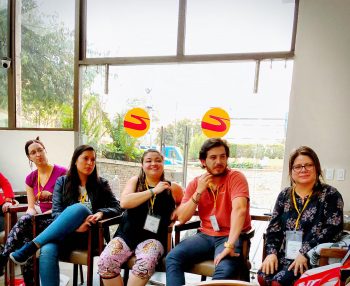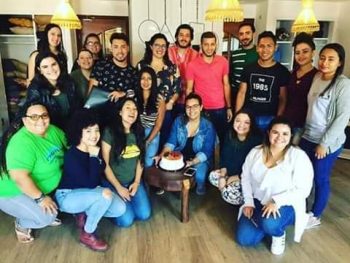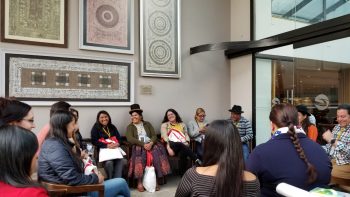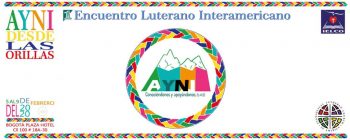 By Brenda Blackhawk
By Brenda Blackhawk
I just returned from Bogotá, Colombia, where I attended the first Inter-American Lutheran Encounter: AYNI. The word “Ayni” comes from the Indigenous communities of Bolivia and its meaning is multi-layered; I’m not sure there is an exact translation into English.
Ayni is a reciprocal understanding of the world and a specific way of living. Ayni means that you have reciprocal relationship with other people and the world around you. It means that when your neighbor needs help with the harvest, you help with no questions asked. When you are building a new home, your community comes to help you without hesitation. When someone is born or dies in a family, everyone shares or cooks or lends a hand. It is both a spiritual practice and a way of being.
And Ayni extends to the land and water and animals as well. You don’t take more than you need and you honor what has been given. And you intentionally give back as needed.
THE CONCEPT OF Ayni is an Indigenous concept that exits around the world. At this Inter-American Lutheran Encounter, there were indigenous people from North, Central, and South America who were quickly able to say, “We have a practice of Ayni, called by a different name.”
 I heard young Indigenous Lutheran women from Costa Rica talk about their Indigenous traditions and spirituality and heard my own story echoed in theirs. And as the older, more assimilated folks asked questions about how they reconcile their Indigenous spirituality with Jesus and the Bible, I watched those women calmly assert that there is no single way to be in relationship with God.
I heard young Indigenous Lutheran women from Costa Rica talk about their Indigenous traditions and spirituality and heard my own story echoed in theirs. And as the older, more assimilated folks asked questions about how they reconcile their Indigenous spirituality with Jesus and the Bible, I watched those women calmly assert that there is no single way to be in relationship with God.
“We cannot simply talk; we must listen.”
And I thought about Ayni and how God must have taught this to Indigenous communities around the world long before the birth of Jesus.
Jesus was born in a manger in a little town in the Middle East. He lived and died in a world of kings and emperors; clashes of cultures and values fraught with inequality, greed, and division. He was born in a specific time, in a specific place, in a world that needed him. And Jesus preached love. He preached Ayni. And then he died for the whole world.
IF YOUR INDIGENOUS SPIRITUALITY leads you to live a life that reflects Ayni, you have a relationship with God and community and the Earth. And you are also living a Christ-like life. (There are echoes of this perspective in Martin Luther’s oft-quoted “God does not need your good works, but your neighbor does.”)
The European colonization of the Indigenous world was sanctioned by the Church with the adoption of the Doctrine of Discovery. The genocide and atrocities of the past and present in the name of empire was authorized and endorsed by the Church. While the ELCA finally repudiated this document in 2016, the Catholic Church has still not done so.
“The genocide and atrocities of the past and present in the name of empire was authorized and endorsed by the Church.”
The stories of Jesus are valuable, but so are the old stories of other lands and peoples. Relationship is reciprocal. It is both give and take. We cannot simply talk; we must listen. And we must try to live a Christ-like life – a life of Ayni.
Imagine the world we’d live in today if we had not lost Ayni along the way.

